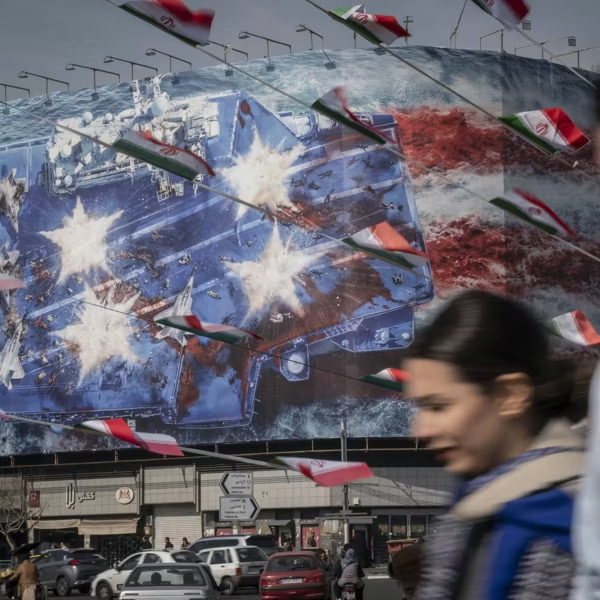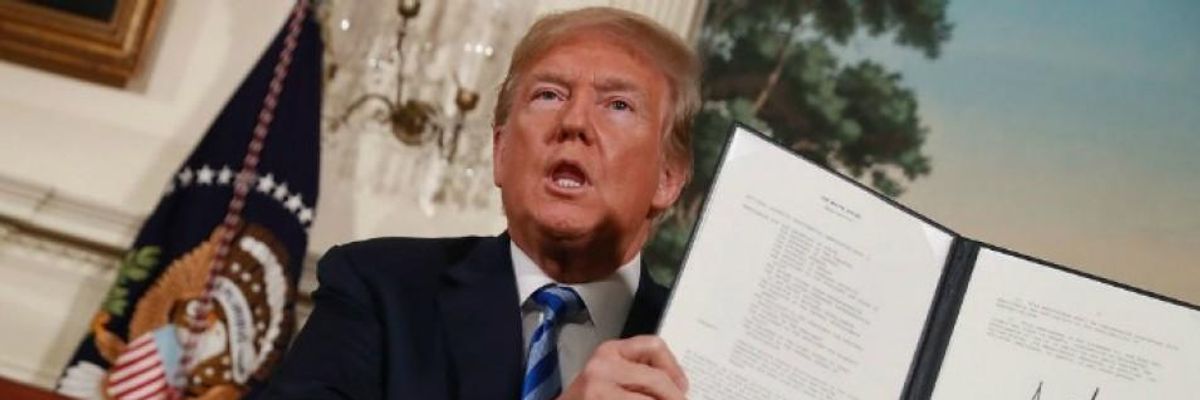President Trump keeps vowing to create more jobs in America. But his actions often speak differently. The most egregious example was Trump's cancellation of the multi-national Iran nuclear treaty that had been welcomed by the world as a major step to Mideast denuclearization.
In abrogating the international treaty signed by the U.S., Britain, France, Germany, Russia and China, the U.S. humiliated its allies and rivals who were strongly in favor of the accord. Iran had already handed 97 percent of its enriched uranium to Russia, shut down reactors and centrifuges, and allowed U.N. inspectors to run all over its nuclear facilities when Trump tore up the deal that had been under negotiation since 2015.
Iran has been under a harsh U.S.-led trade embargo since its 1979 revolution that was designed to cripple its economy and military, and drive the people to rebel against their government. Washington used the same tactics--without success--against Saddam Hussein's Iraq and Fidel Castro's Cuba.
So intense is the Trump administration's hatred for Islamic Iran that it decided to scrap the multinational nuclear deal that would have meant opening Iran to western commerce, and a bonanza for U.S. and European companies. The key element of the deal was to have been the sale of some 210 commercial jet airliners to Iran by the U.S. and the European Union, a deal worth some $40-50 billion, not counting future sales of spare parts.
The U.S. embargo of Iran since 1979 has made it unable to modernize its commercial airline fleet. Iran was denied modern aircraft, spare parts, engines, and instruments, leaving it with decaying aircraft from the 1970s.
The grim result of the U.S.-imposed embargo has been 17 crashes of Iranian civilian aircraft with 1,500 deaths.
Most of Iran's commercial aircraft--a grab bag of old, mostly 25-year old Boeing, Airbus, Chinese and Soviet aircraft--are flying coffins. Iran's maintenance, training, and air traffic control are substandard. Flying over and around Iran's lofty mountains is a challenge for the best of pilots, even for a handful of newer ATR turboprop aircraft.
Washington's denial to Iran of Boeing Aircraft (and Airbus planes because they contain U.S.-made parts), means the loss of tens of thousands of highly-paid jobs in the U.S. and Europe. Israel's prime minister, Benjamin Netanyahu, claims he talked Trump into canceling the Iran nuclear deal and the Boeing orders.
It's hard to validate Netanyahu's claim but it is clear that America's ever more powerful Israel lobby and its ally fundamentalist Christian Zionists played a key role in thwarting the Iran nuclear deal and sale of commercial aircraft.
We don't yet know the full cost of lost American jobs and business to help keep Iran isolated. But one could argue that part of the $20 billion lost should be counted as part of annual U.S. aid to Israel.
Russia and China's aircraft industries will soon be able to deliver modern passenger aircraft to Iran and accept payment in oil. China's C919 and ARJ21 are now nearing service. Russia's Sukhoi Superjet 100 will be ready soon. Trump could be cutting off his nose to spite his face.
Trump and his allies are trying to push Iran into a corner and provoke it to lash out at U.S. forces that are poised around it. A navel clash in the Gulf is the obvious pretext for war.
While the U.S. goes after Iran, it has opened a new anti-Muslim front against old ally Turkey by imposing heavy duties on Ankara's exports to the U.S. and attacking the always vulnerable Turkish lira. This, in turn, has set off a financial crisis across Europe, notably among EU banks that have large, soft loans made to Turkey.
Trump & Co. are trying to force Turkey to bend the knee and support U.S.-Israeli-Saudi policy goals. Turkey and Iran remain the last significant supporters in the region of the Palestinians. Trump and the New York City real estate developers, and the money men who surround him, are determined to show the independent-minded Iranians and Turks who is the big boss.




